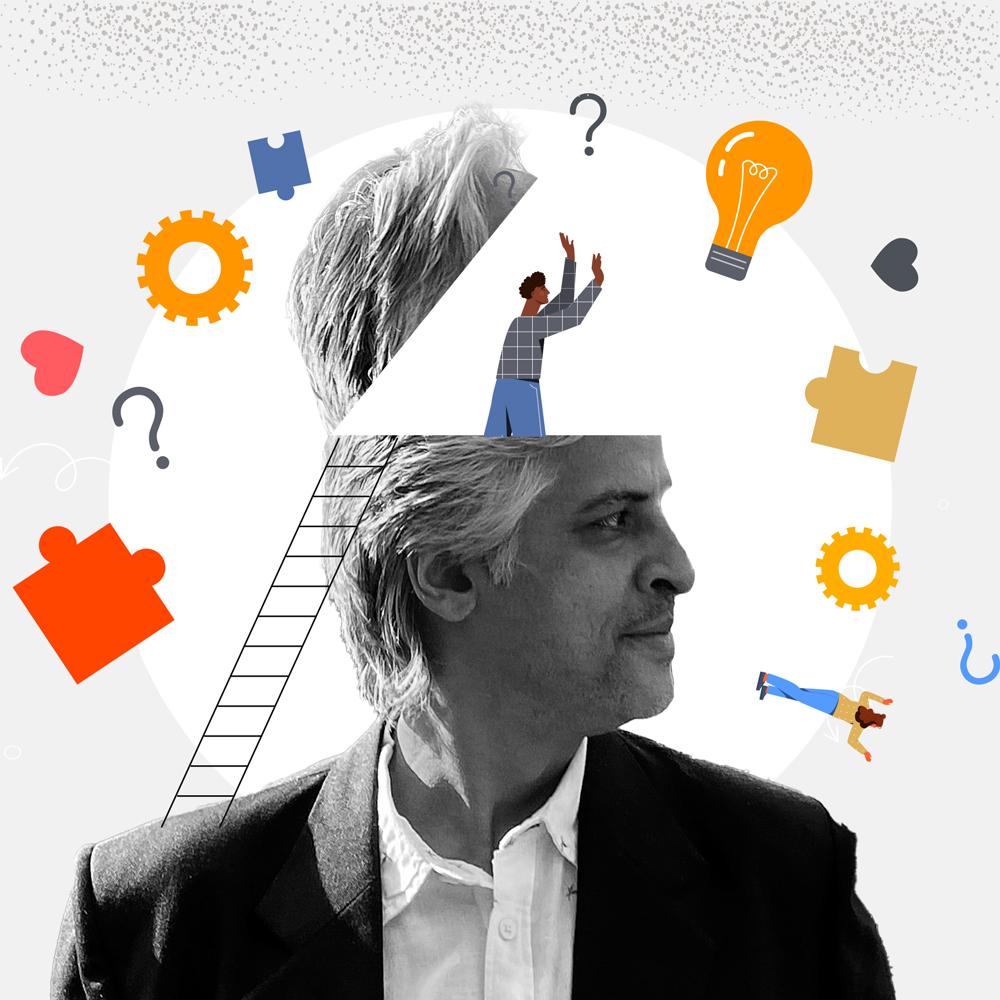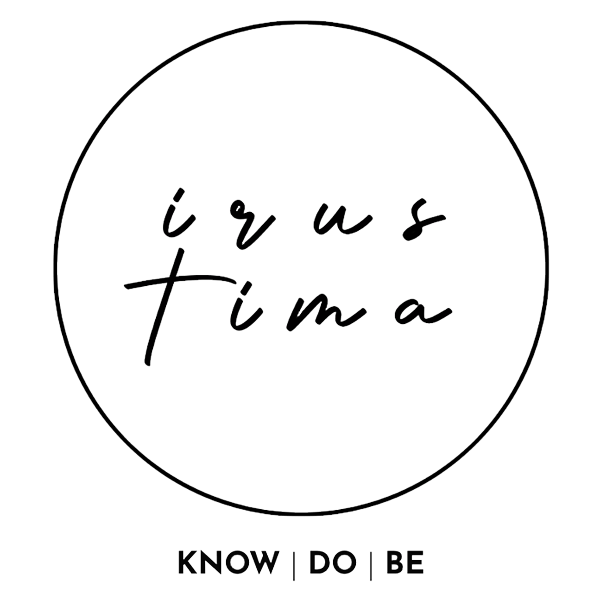
25 Oct The Essential Art of ‘Un’learning
Clearing the mind clutter
As Diwali draws near, most people light up at the thought of festive treats, sparkling lights and holidays. Then, there are those of us who get equally thrilled about rolling up our sleeves to dive into a deep clean, and shedding all the clutter that’s quietly accumulated over the year—perhaps over several years, or if you follow Hindu philosophy, even across lifetimes! Last year, after picking up Marie Kondo’s book, I was inspired to channelise my inner tidy guru, and it worked like a charm. First, Md. Kondo helped to clear out my physical space, and then she got me thinking: Is decluttering just for the material world, or could our minds do with a decluttering too?
There’s a good chance you’ve been taught the importance of learning since the day you first opened your eyes to the world. From our first faltering steps to our final breath, life has been a steady progression of absorbing knowledge, experiences, lessons and networks. It’s as if learning is our sole mission — to become a sponge, soaking up most bit of information that life throws at us. But, as we strive to fill our minds with wisdom, knowledge, and growth, something crucial often slips through the cracks. Something we do not do consciously: unlearn.
Unlearning? Yes, you read that right! Think of it this way: When your phone’s storage is full, you either delete unwanted files or transfer them to another device. It frees up space, helps your phone function smoothly, and allows room for newer, more important content. But imagine never clearing out that clutter. Your phone becomes sluggish, its performance impaired, and eventually, it’s beats the snail that gone on a world tour. The same principle of decluttering our physical spaces also applies to decluttering our mind spaces.
We focus so much on learning that we often neglect the essential art of ‘un’learning. But why should we unlearn? Isn’t knowledge power? Well, not always. As we grow, our minds collect a wide range of beliefs, habits, biases, and information that once served us well, or was perhaps seeded into our minds (See the film Inception by Christopher Nolan). But not all knowledge ages like fine wine. Some of it becomes stale, irrelevant, or even harmfully deceptive, filling our minds with mental clutter that clouds our judgment and fuels unnecessary anxiety. Just as Ms. Kondo encourages us to discard physical possessions that no longer spark joy, we must learn to let go of mental baggage that no longer serves us, or serves the greater good of our personal universe.
The Necessity of Mental Decluttering
If you’ve ever tried to meditate, you know that one of the hardest things to do is silence the mental chatter. The thoughts swirl around like a tornado: work deadlines, social media updates, that one embarrassing thing you did five years ago. It’s relentless. But have you ever stopped to think about how much of that mental noise is unnecessary? How much of it is simply outdated programming or learned behaviors that no longer benefit you?
Life isn’t static. We grow, evolve, and change. What we learned at age 10 about relationships, hard work, or success may not apply at 30, 40, or 50. Yet, we carry these beliefs, clinging to them as if they were gospel, letting them shape our actions and decisions. We overthink, overanalyze, and in the process, lose precious time and peace of mind. It’s as if our mental hard drive is full, and we keep hitting refresh without deleting the junk.
Take, for example, the belief that “success means working 24/7.” This might have been ingrained in us during our formative years, and perhaps it pushed us to excel in our careers. But is it still serving us today? Or is it contributing to burnout, anxiety, and the constant nagging feeling that we’re never doing enough?
The act of unlearning requires us to evaluate the mental clutter we’ve accumulated over time and ask ourselves, “Does this belief, habit, or piece of knowledge still serve me?” If the answer is no, it’s time to let it go.
The Emotional Connection: Why It Matters
You might wonder, why not just focus on learning new things? Why even bother with unlearning? The answer lies in our emotional connection to the things we’ve learned.
We’re not robots, which is increasingly becoming more relevant in the age of AI. As much as society pushes us toward optimization and efficiency, we are emotional beings. While learning adds value and knowledge to our lives, it’s our emotions that truly define our human-ness. The things we believe, the habits we form, and the knowledge we hold aren’t just intellectual—they’re, more often than not, emotional. They shape how we see ourselves and the world.
Think about the beliefs and values we hold today. Many of them are tied to experiences that stirred something deep within us—joy, pain, fear, or love. As we grow, some of these emotions evolve, while others fade. Holding on to outdated beliefs, habits, or knowledge can keep us emotionally stuck. It’s like wearing shoes that no longer fit; they may have once been comfortable, but now they just cause blisters.
This is why the process of unlearning is so essential. It’s not just about making room for new knowledge; it’s about making room for new emotional experiences that add value. When we cling to things that no longer serve us emotionally, we risk losing touch with the very essence of what makes us human—our ability to feel, to connect, and to grow emotionally.
Unlearning Biases and Prejudices
Nowhere is the need for unlearning more evident than in the realm of biases and prejudices. We live in a world that’s constantly evolving, and yet many of us hold onto beliefs and stereotypes that were passed down to us by previous generations, society, or even our own past experiences.
How many times have we caught ourselves making assumptions about someone based on their background, gender, or appearance? These biases are often so ingrained that we don’t even realize they’re there. They affect our decisions, our relationships, and how we view the world. And more often than not, they do more harm than good to us and to others.
Unlearning these biases is essential if we want to grow both intellectually and emotionally. It requires humility and self-awareness to recognize that just because we learned something doesn’t mean it’s correct or relevant in current times. It’s about being open to new perspectives and willing to challenge the status quo.
The Anxiety Trap
Another important area where unlearning plays a crucial role is in managing anxiety. I hope my wife is reading this post :). Our minds are constantly bombarded with information—news, social media updates, personal dramas. We’ve learned to process this deluge of data, but we haven’t learned to filter it. Read that again please – We’ve learned to process this deluge of data, but we haven’t learned to filter it. Instead, we absorb everything, often at the cost of our mental health, which most affected would not agree is a mental health issue.
Much of the anxiety we experience stems from learned behaviours—overthinking, catastrophising, or holding onto worst-case scenarios. We’ve learned to dwell on what could go wrong instead of what could go right. Unlearning these behaviors is crucial for regaining control over our mental well-being and mind spaces.
This doesn’t mean pretending everything is perfect or ignoring real problems. It means recognising when our learned patterns of thinking are no longer helping us and choosing to let them go. It’s about replacing anxious thoughts with more balanced, rational perspectives.
How to Start Unlearning
Unlearning is not a one-time event. It’s an ongoing system, and process, much like learning itself. Here’s how we can start:
1. Self-reflection: Take time to reflect on your beliefs, habits, and knowledge. Are they still serving you, or are they holding you back?
2. Challenge assumptions: Question the things you’ve always accepted as truth. Be open to new perspectives and experiences.
3. Embrace discomfort: Unlearning can be uncomfortable because it often requires us to confront our own flaws and mistakes. But growth comes from discomfort.
4. Be patient: Just like learning, unlearning takes time. Don’t rush the process. Give yourself the space to let go of things gradually.
5. Build the pillars: Take time to build your fitness, finances, relationships with family, and inculcate ‘soul’ friends. Unlearning is easier and faster when we stand on these four strong pillars.
The art of unlearning is a quiet, powerful rebellion. It’s a way of reclaiming our mental and emotional spaces, discarding what no longer serves us or our ecosystem, and making room for growth, connection, and joy. Learn but un-learn as much too.
—
Lately, I’ve taken Marie Kondo’s decluttering principles beyond the drawers, niches, and mind space, and started applying them to relationships. Turns out, there’s quite a bit of ‘friendship clutter’—from people I once mistook for confidants, to colleagues I thought were team players. Decluttering isn’t just for the material world; it works wonders for mind space and people, too. This Diwali, if you’re feeling brave enough to embrace a little social minimalism (and can remain unbothered by the inevitable gossips), give it a go—it’s refreshing to keep only the connections that truly “spark joy” and add “emotional value”!
If you liked this post, then you may consider reading Big 4 Life Questions & No Right Answers and The ‘Marie Kondo’ Gene also.



No Comments